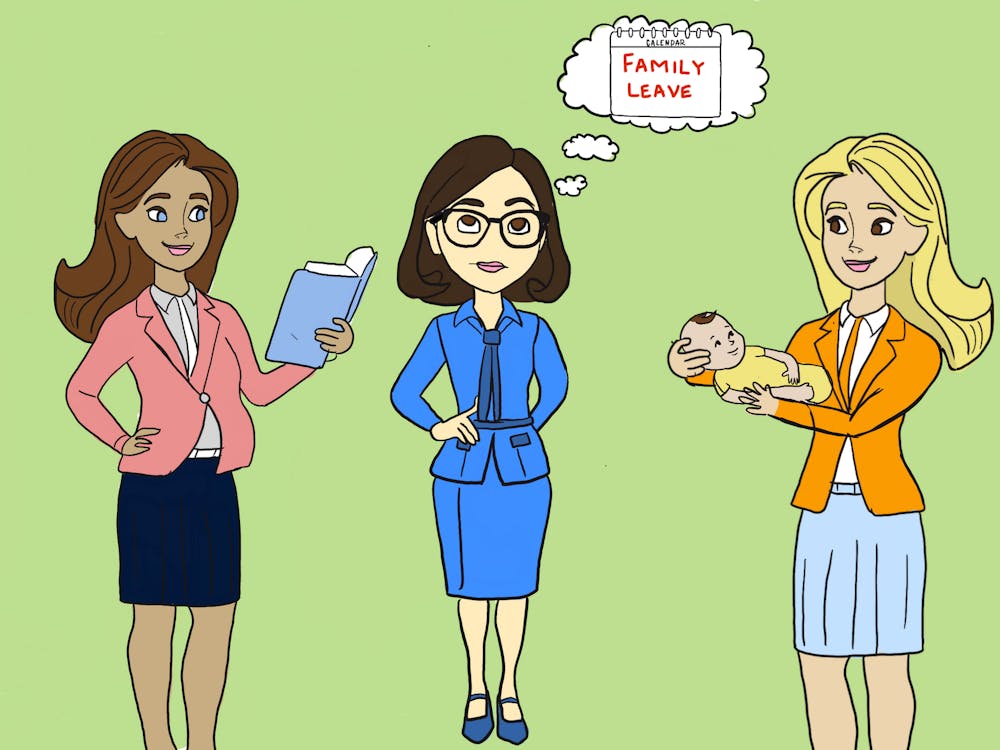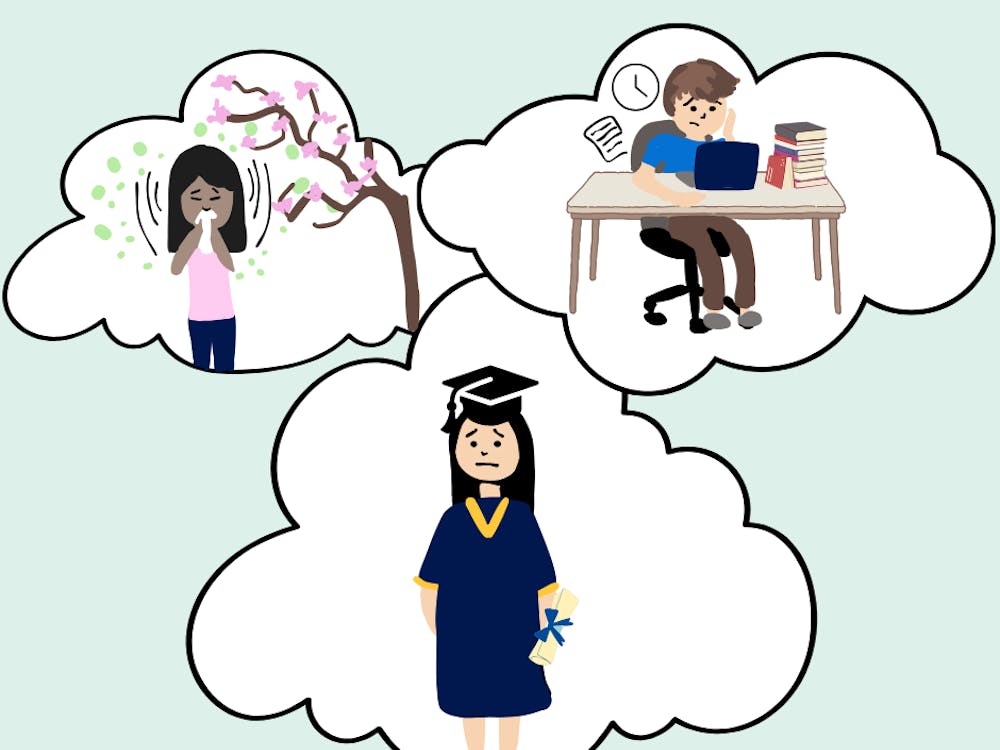Sometimes, I stop and think, “Wow, I’m in college.”
The thought strikes me whenever, wherever — it tends to be completely unexpected and often inconvenient. Invariably, though, the thought is followed by the question, “But what does that mean?”
Many of us were fortunate enough to grow up with a vague notion of going to college in the future. As we got older and our goals became more defined, we looked at colleges, visited them, cringed when our parents asked embarrassing questions on tours and subsequently applied anyway. Now we’re here at the University of Virginia, a tangible space — and yet this reality can still be pretty hard to conceptualize.
We talk about and refer to this elusive concept of college in a handful of ways which are rather unhelpful for figuring out what being here at the University means. None of our daily invocations of the word help us define it in a substantial way. We use prepositions to say we’re “in college,” “at college” or that we “go to college.” We describe how we feel about college: we love it, we like it, or — hopefully infrequently — we hate it. Alternatively, we hear college described with one of the most exciting, yet frightening superlatives of all: “College is the best four years of your life.”
That phrase — the sole, lonely use of “is” — carries an awful lot of pressure and begs a number of questions. Is this nebulous entity of “college” inherently the most wonderful experience we’ll ever have, or do we have to live our lives in a certain way to make it so wonderful?
Is waking up at 11 a.m. and eating a Girl Scout Cookie for breakfast really the highlight of my existence?
“The best four years” might be our retrospective definition from the future. One day we may catch ourselves using this very phrase. But right now, we’re still here. Being here requires figuring out what college is now, rather than what it will be.
This isn’t a dilemma restricted to soul-searching columnists concurrently searching for biweekly column ideas. My Dialogue Across Grounds group last semester mimicked “What is the role of a public university?” panels on Grounds to invoke questions about the general role of a college or university. There are arguments for its role as an educational institution, a research institution and an institution of public service. In a similar way, we might argue the role of college in our lives is to provide classes, networks or clubs and organizations.
I had a conversation about this dilemma with a friend, in which she assured me not only that she has these same mental debates, but that I was no more crazy for wondering about them than she was for staring at her hand and remembering she’s alive. Interpret our sanities as you will from that, but we did come to an important conclusion: college is individual.
My biggest takeaway is not answering the question, “What does it mean to be in college?” for everyone — rather, we need to take time to reflect on what being here means to each of us.
For me, I’m beginning to realize that to be “in college” is to “live college” — to take classes across crazy disciplines because I can, to engage in organizations, forfeiting sleep in return, and to occasionally run down the Lawn and say goodnight to Mr. Jefferson because, well, it’s tradition.
But an equally valuable experience of being “in college” is to acquire the academic skills and knowledge you need to survive the elusive real world, and to garner and hone your professional attributes.
Ultimately, I encourage you to look at the big picture of why you are here.
It’s easy to get caught up in the minutia, the feeling of “just getting through this week,” the to-do list which includes tomorrow’s problem set, Thursday’s exam and Friday’s trip to the AFC. I do it all the time — in responding to emails and attempting my readings day by day, I’m still not sure how the month of March snuck up on me as it did. But I think it’s important to have a sense of being “in college” that’s more than just keeping up with details of daily life.
I am in college. I go to the University of Virginia, and I’m figuring out what that means. How about you?






